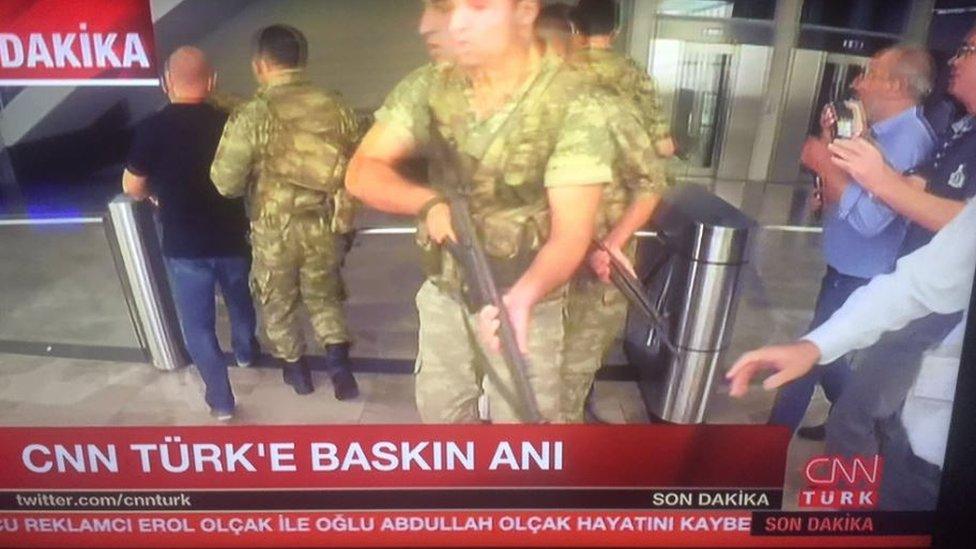Turkey crackdown piles pressure on media after coup bid
- Published
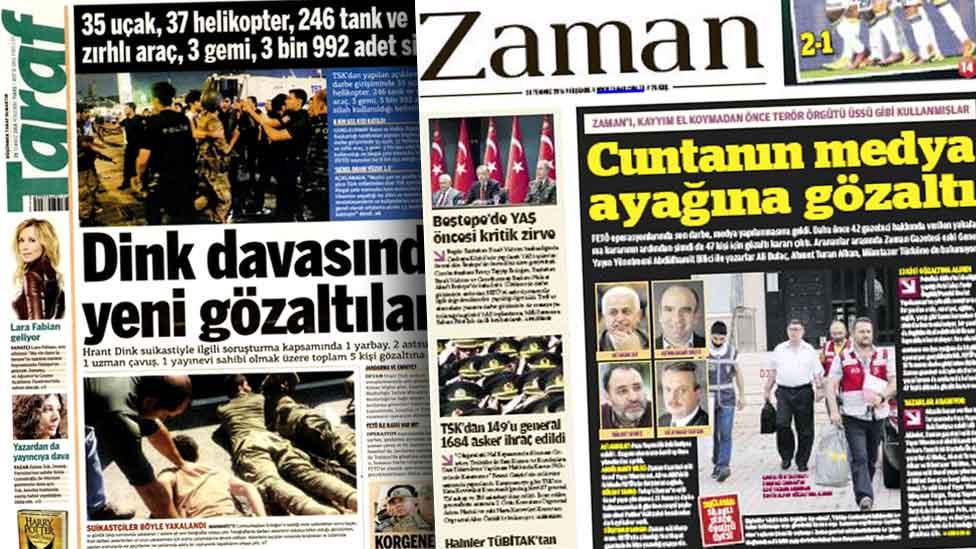
The Turkish government has closed dozens of newspapers
Turkey's crackdown after the failed 15 July coup attempt is affecting media freedom, in a country where many journalists have already been harassed or arrested.
Amid a purge of the army and state institutions the authorities issued a decree closing 131 media outlets, for their alleged ties to the Hizmet movement of anti-government cleric Fethullah Gulen.
The government accuses him of organising the coup attempt - which he strongly denies.
Turkey already has a poor track record on media freedom, ranking 151 out of 180 countries in this year's World Press Freedom Index, published by Reporters without Borders (RWB).
The sheer number of media organisations now targeted means the space for opposition voices has shrunk.
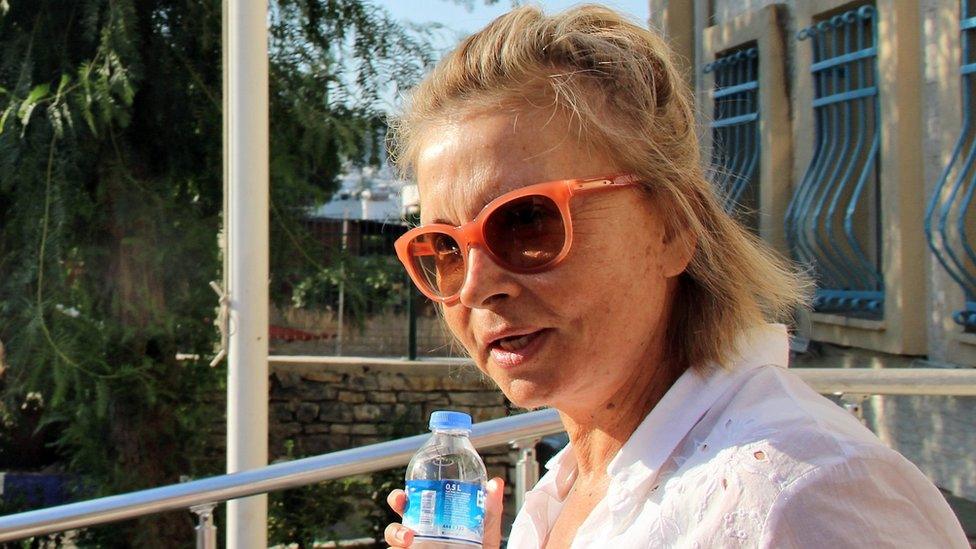
Turkish columnist and former parliamentarian Nazli Ilicak was detained this week
One of the papers listed for closure is Zaman, which adopted a critical stance towards the government after a big rift opened up between Mr Gulen and President Recep Tayyip Erdogan in 2013. The paper was put under government administration earlier this year.
Another is the Taraf daily, described by some as an opposition newspaper. It played a key role in the Ergenekon case - a series of high-profile trials involving more than 200 people, including army generals and journalists, accused of plotting against the government.
The paper's journalistic standards were criticised after documents which it published, implicating defendants, turned out to be fake.
Arrest warrants
The order to close various media outlets came after warrants were issued earlier this week for the arrest of 89 journalists.
There are suggestions that the government is using the coup attempt as a pretext to target critical journalists.
Reporter and columnist Nazli Ilicak was detained, to the surprise of colleagues.
The T24 internet newspaper commented: "What is the meaning of the detention of Nazli Ilicak, who has spent her entire life fighting against coups?"
Another of the detained journalists is award-winning Bulent Mumay, who used to work for the centre-right Hurriyet daily.
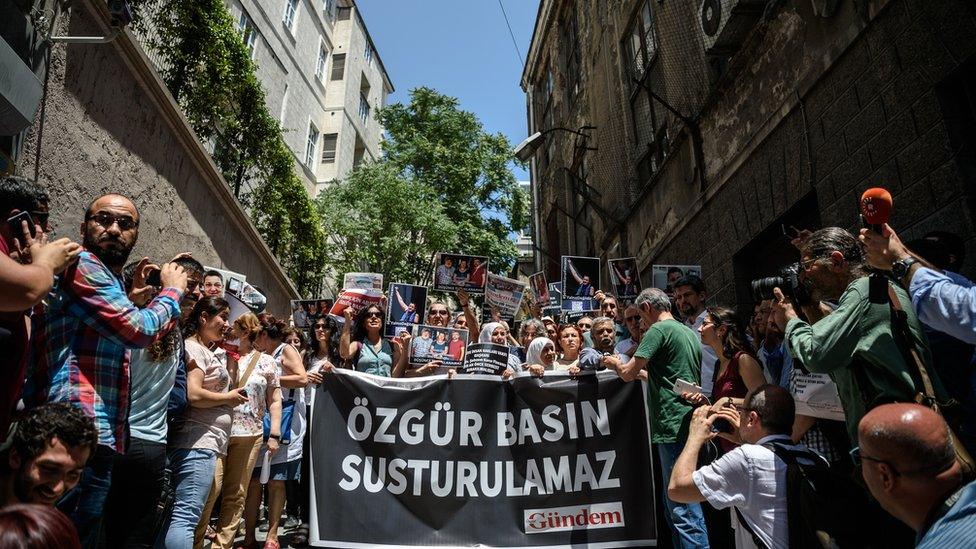
Media freedom had been curbed even before the failed coup of 15 July
Mumay denies any involvement with the coup attempt and protested against his detention by posting a picture of his press card on Twitter and saying: "This is the only organisation I am a member of."
The government has also had an uneasy relationship with social media. On the night of the coup President Erdogan mobilised massive support against the army putschists by using social media - yet he has previously lashed out at Twitter.
In March 2014, the Turkish authorities temporarily blocked Twitter after Mr Erdogan had threatened to "wipe it out", amid corruption allegations against him and his son - allegations he denied.
BBC Monitoring, external reports and analyses news from TV, radio, web and print media around the world. You can follow BBC Monitoring on Twitter , externaland Facebook, external.
- Published28 July 2016
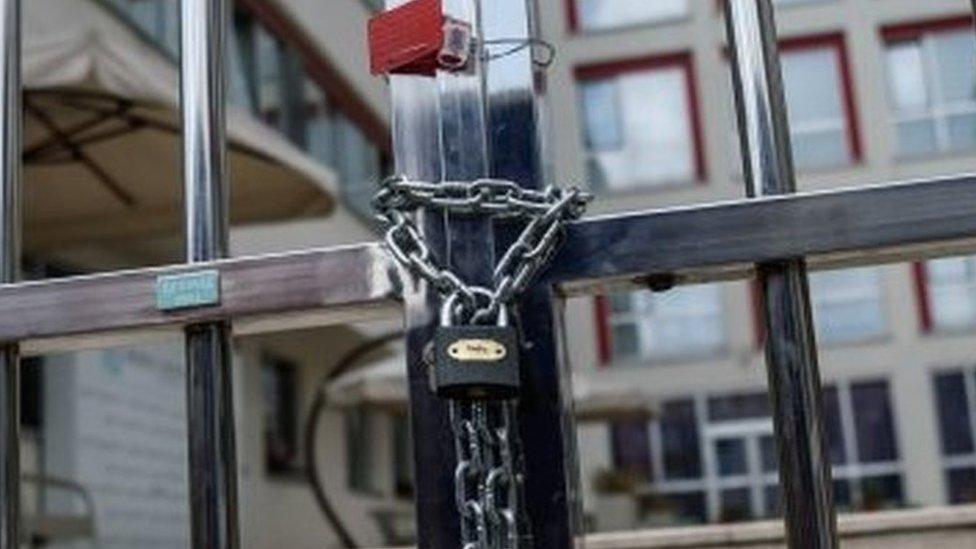
- Published22 August 2023

- Published18 July 2016
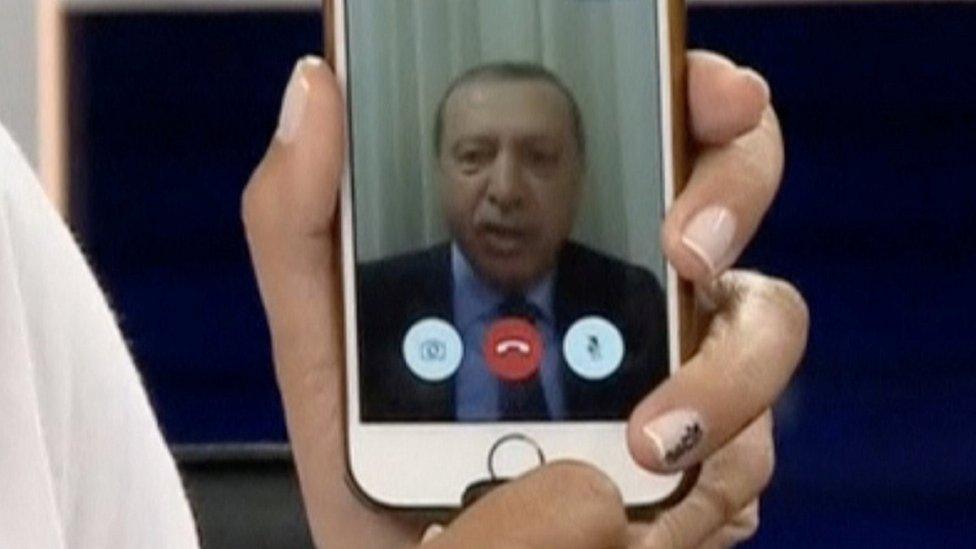
- Published25 July 2016
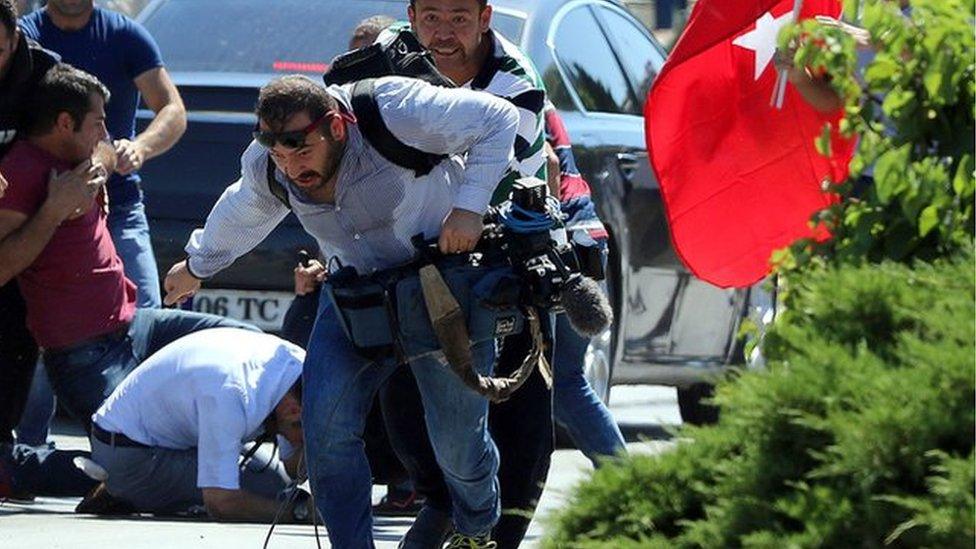
- Published23 July 2016
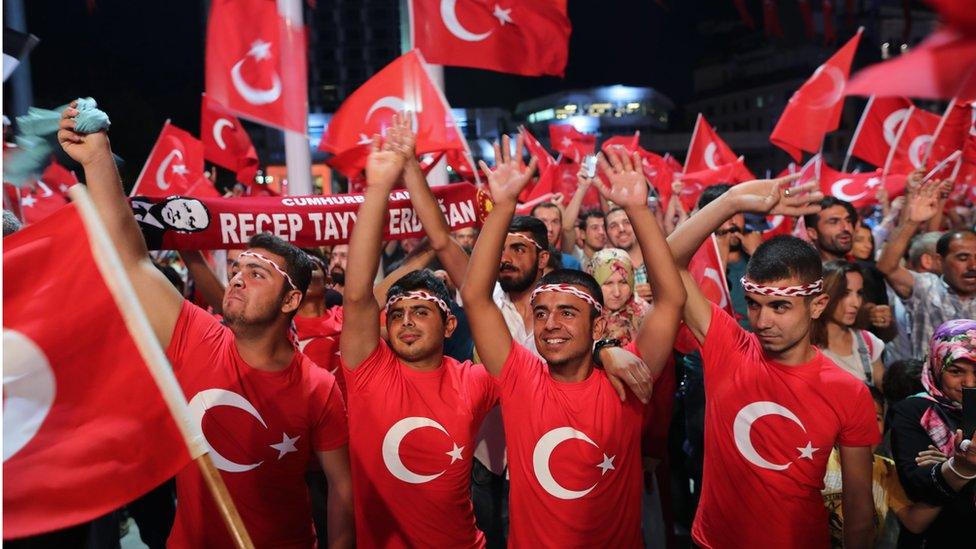
- Published16 July 2016
